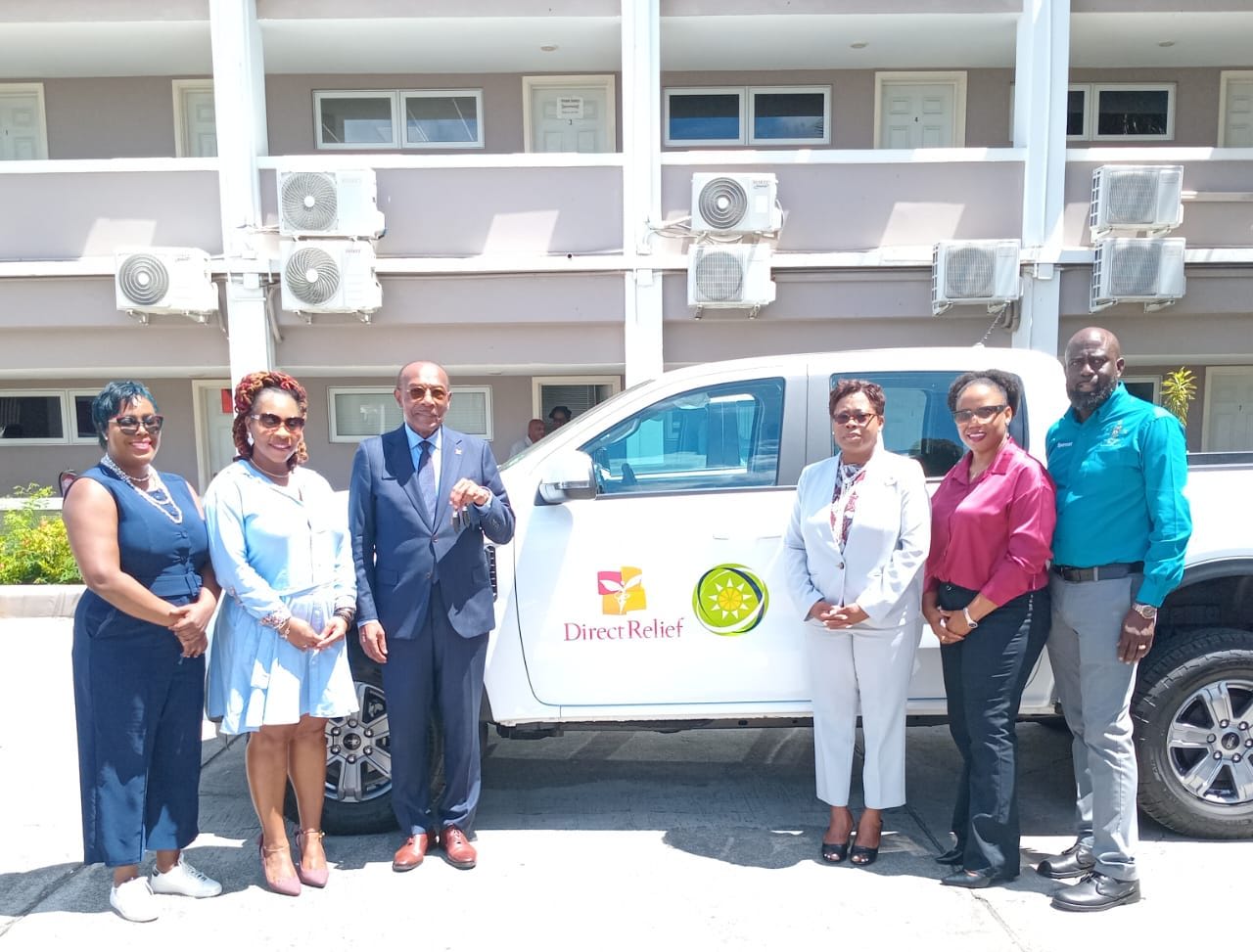The OECS and Direct Relief Strengthen Vector Control and Surveillance in Antigua and Barbuda
OECS MEDIA RELEASE
In a significant move to strengthen national health systems, the Organisation of Eastern Caribbean States (OECS) Commission, through its Direct Relief-funded Enhancing Health Infrastructure and Resilience (EHIR) project, officially handed over two vehicles, thirty laptops, and ten tablets to the Ministry of Health of Antigua and Barbuda to support its vector control initiatives and epidemiological surveillance on August 29th, 2025.
The OECS EHIR project aims to strengthen health infrastructure and resilience across the region. The resources donated are expected to enhance the Ministry’s ability to monitor disease trends, coordinate rapid response efforts, and implement targeted interventions to reduce the spread of vector-borne and communicable diseases. The vehicles will provide much-needed mobility for health teams engaged in field operations, whilst the laptops and tablets will support efficient data collection, analysis, and reporting for surveillance programs.
The handover ceremony, held at the Ministry's headquarters, was attended by the Minister of Health, the Honourable Sir Molwyn Joseph, senior ministry officials, including Permanent Secretary Ms Stacey Gregg-Paige, Chief Medical Officer (Acting) Dr Terri-Ann Joseph, Epidemiology Manager Ms Soria Dupie, and Deputy Chief Health Inspector Mr Daryl Spencer. Also in attendance, representing the OECS Commission, were Dr Roxanne Brizan-St. Martin, Programme Director for Health, Social Inclusion, and Social Protection, and Ms Anela Jean-Marc, Project Officer within the Health Unit.
At the ceremony, Sir Molwyn Joseph emphasised the growing challenges posed by climate change, which increasingly promote the spread of mosquito-borne illnesses like dengue, chikungunya, and Zika. He noted that while Antigua and Barbuda maintains a solid surveillance system, "we cannot afford complacency." The newly acquired resources, he added, will greatly enhance mobility for health teams conducting field operations and facilitate more efficient data collection, analysis and reporting.
Expressing appreciation on behalf of the Government and people of Antigua and Barbuda, the Minister stated, "On behalf of the Government and the people of Antigua and Barbuda, I extend our sincere gratitude to the OECS, the Direct Relief Fund, and PAHO. Your partnership demonstrates that together, with solidarity and shared vision, we can confront any public health challenge."
Representing the OECS Commission, Dr Roxanne Brizan-St. Martin, Programme Director for Health, Social Inclusion, and Social Protection, indicated that this project represents a direct response to the pressing needs articulated by Antigua and Barbuda for enhancing the health system by tackling healthcare and public health challenges, mitigating the impacts of disasters, and ultimately improving health outcomes. Dr Brizan-St. Martin framed the significance of the event, stating,
“What we are celebrating today is not simply the delivery of resources, but the co-creation of solutions through meaningful partnership. A victory for one is indeed a victory for all.”
Her words resonated with the spirit of regional cooperation and mutual support that defines the OECS.
This collaboration with the Ministry of Health of Antigua and Barbuda through the Direct Relief-funded EHIR project highlights the OECS Commission's commitment to fulfilling OECS Strategic Priority 4: Building resilience by strengthening communities, systems, infrastructure and people.
Media contact
Malika Thompson-Cenac
OECS Communications Unit







